Going nowhere
Life on land



Your support will assist us to continue our research and content development, the greater our resources, the more we can do.
The more we have an accurate understanding of what is happening to nature, the more we can all do to protect what remains of our living planet.
This is also an opportunity for philanthropists to be part of an ongoing project that tells independent stories about the natural world, stories that will help us to better understand what is happening to species and places on our precious planet Earth.
Note: Creative Cowboy Films does NOT have tax deductible charity status.

The Nature Knowledge Channel is a very real way you can help the precious natural world and support the work we do in creating knowledge about the natural world.
Annual membership of the Creative cowboy films - Nature Knowledge Channel gives you full access to content, stories and films, available on this website. Becoming a member of the Creative cowboy films - Nature Knowledge Channel is a very real way you can help the natural world and support our work in creating a greater understanding about what is happening to it.
A point of difference
Creative cowboy films is independent, is not funded by governments or industry, and is not influenced by their associated interest groups. For reasons of independent research and content development, Creative cowboy films does NOT have tax deductible charity status.
Life on land
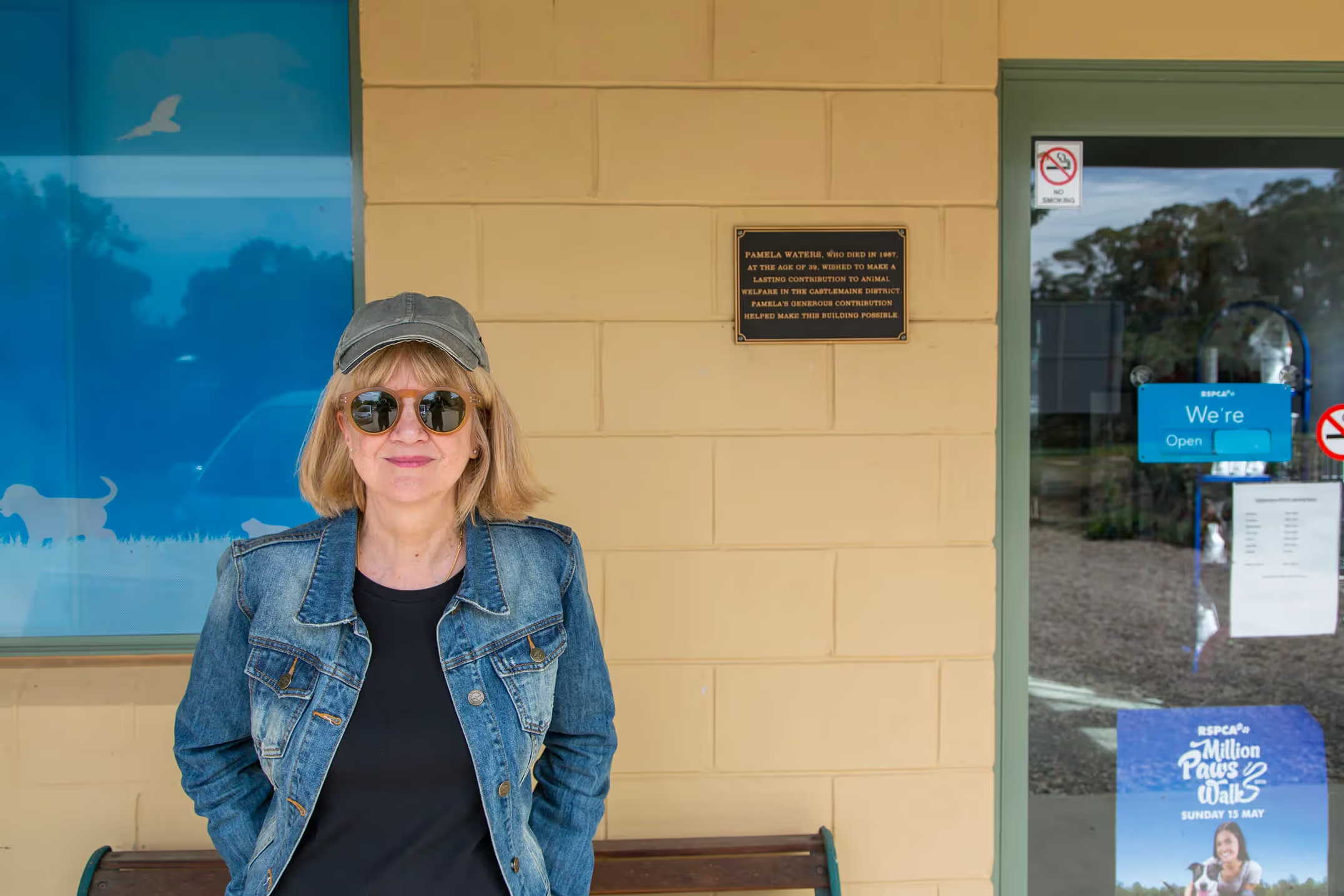
In 1995 the RSPCA in Victoria, Australia joined the operations of an existing regional animal welfare organisation called Midland Animal Welfare in Castlemaine. In 2016 and from our home in Japan, we discover that the RSPCA intends to close the animal shelter we all worked so hard to create.
Almost a decade earlier, Andrea’s sister Pamela died of a brain tumour in Castlemaine, a regional town where Andrea and I owned a beautiful property where we had developed a wildlife conservancy as well as using the house as a global base for our various business and cultural activities.
Pam had come to Australia with her partner Les to join Andrea in Melbourne and to work as a teacher. In the 1970s Pam became the headmistress of the Indigenous school on Crocker Island in Arnhem Land. A place and culture she loved and a very different world from teaching in schools around the south of England.
After her illness was diagnosed, Pam moved back to Victoria and stayed in our house Hillgrove, in Chewton. Les and Pam then moved to a house in the nearby town of Maldon. In the months that followed we spent as much time with Pam as we could. Les now looked after Pam full time as we tried everything to help her fight her very terrible illness. These were both happy days of all being together and the endless journey from hope to despair and back to hope again.
Pam had always cared about animals and she wanted to be remembered for helping animals. Les and Pam decided that money from Pam’s estate would be set aside so that it could be used to help build an animal shelter in Castlemaine, a town in Central Victoria.

In a place not devoid of social problems and with its then poor standards of education relating to animal welfare and conservation, animals can take the full force of the anger of human disadvantage. It was obvious that the region needed proper facilities to cope with the problems facing domestic animals, direct cruelty and the dumping of animals, particularly cats, in the bush. Although local animal welfare groups had tried to deal with these ever growing problems as human populations expanded, it was clear that the region needed greater capacity to cope with the animal welfare problems.
Les decided he would leave Victoria after Pam’s death, Andrea and I wanted to ensure that progress was made in laying out the plans for the new shelter. These were days of frequent visits to Hillgrove, our conservation property in Central Victoria, by members of the RSPCA staff and friendships were formed and remain enduring.
These visits were about planning the shelter, we liaised with the dedicated group of people who had worked so hard to build the capacity of Midland Animal Welfare and to improve the animal welfare characteristics of the region, we worked with Hugh Wirth, Peter Barber and Alan Synnott from the RSPCA over many months.
We organised the plans for the shelter, which were drawn up by a local draftsman, we liaised with the council, engaged the builder and generally kept the pressure on to ensure the project was completed quickly. These were happier times again and we felt that we were making progress.
The shelter was full from the day it opened so the demand for proper animal welfare facilities that was so obvious and for so long, was now in plain view.
Alan had this to say:
"With the generous donation from the estate of Pam Waters, the RSPCA were able to negotiate with the Mount Alexandra Shire Council for a suitable parcel of land on which to build. Council offered the land in Langslow Street that the shelter is now built on".
The proposed development consisted of two sets of dog kennels, one for impounds, and one for surrendered and ‘for re-homing’ dogs. A quarantine and separate re-homing area for cats was also established. The administration building included a vermin proof food store, veterinary room, staff kitchen and lunchroom, administration office and reception area.
Before building could commence, there were challenges to overcome. The land is below the level of the water treatment works next door, so a pumping station had to be included in the design. Another challenge was the slopping and rocky nature of the ground. Some creative design overcame these obstacles and a modern shelter was built.
A Castlemaine builder, plumber and electrician were contracted to build the shelter, fence the three paddocks and upgrade the shed to act a stable and food store. A load on/off animal race was added to complete the animal handling facilities.
Without the very generous support of animal lover Pam and her husband Les and the encouragement of Andrea and Peter Hylands this shelter may well not have been built. It stands as a permanent reminder of Pam’s love of animals and her generosity.
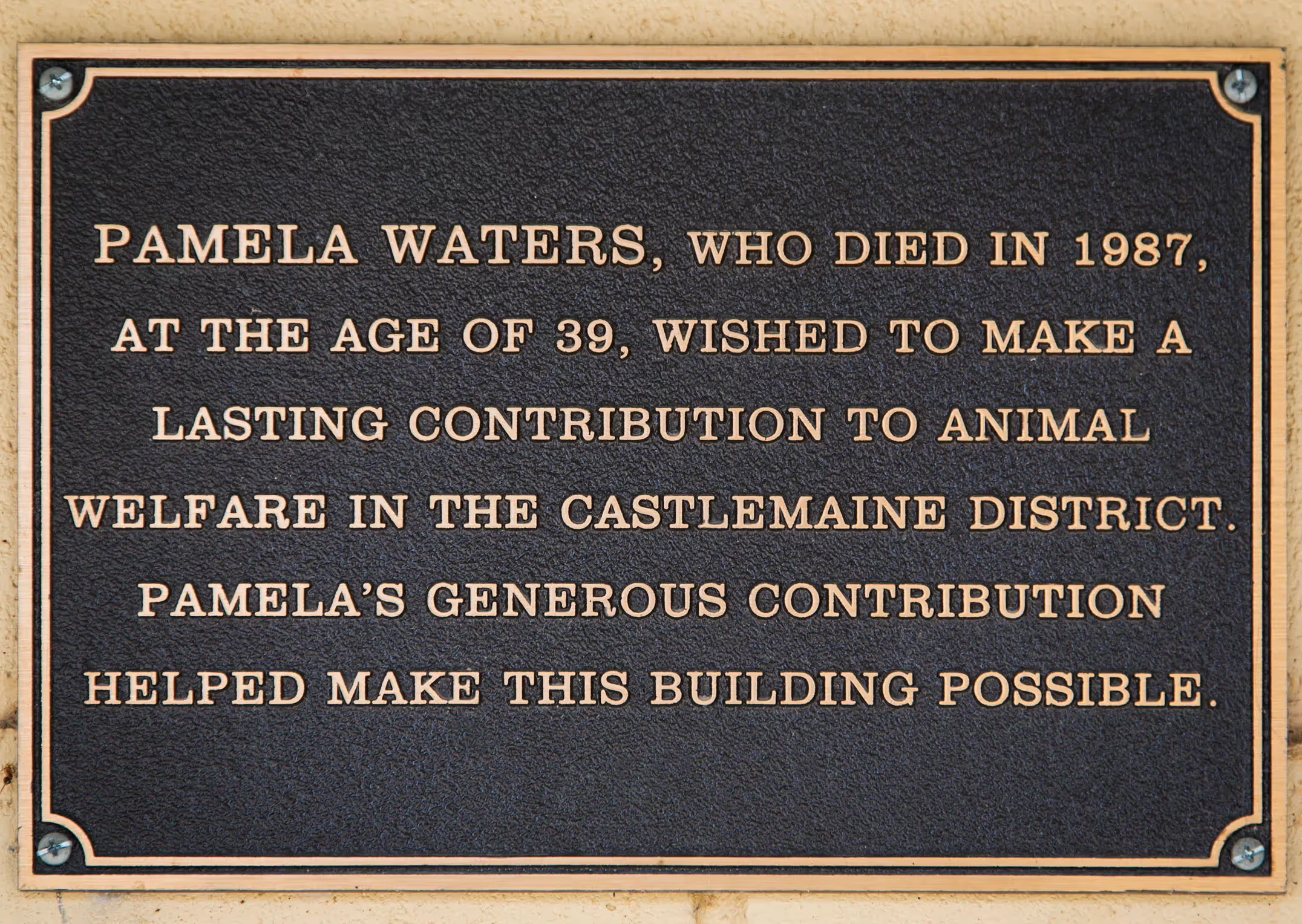
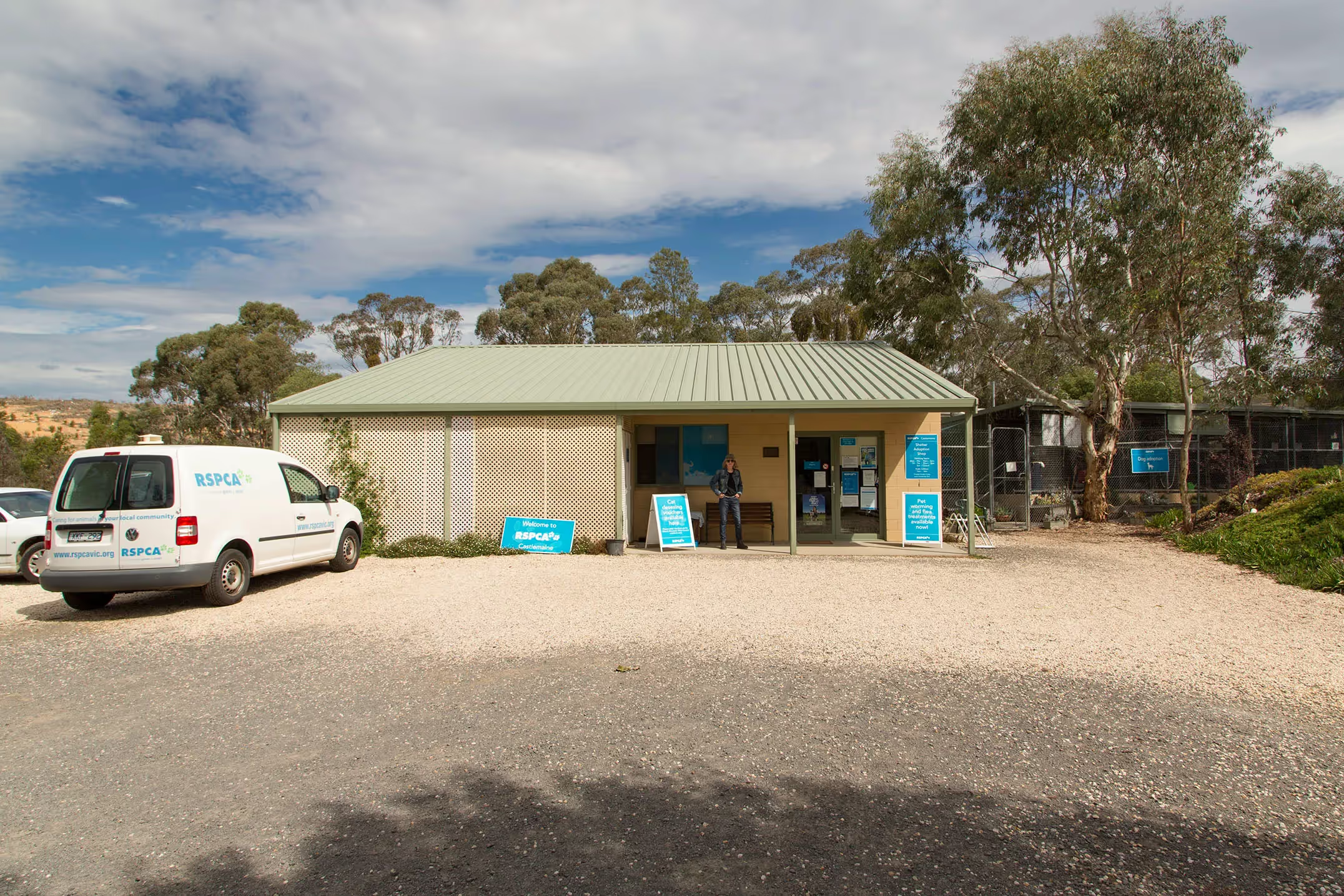
The shelter was built because of the following key issues:
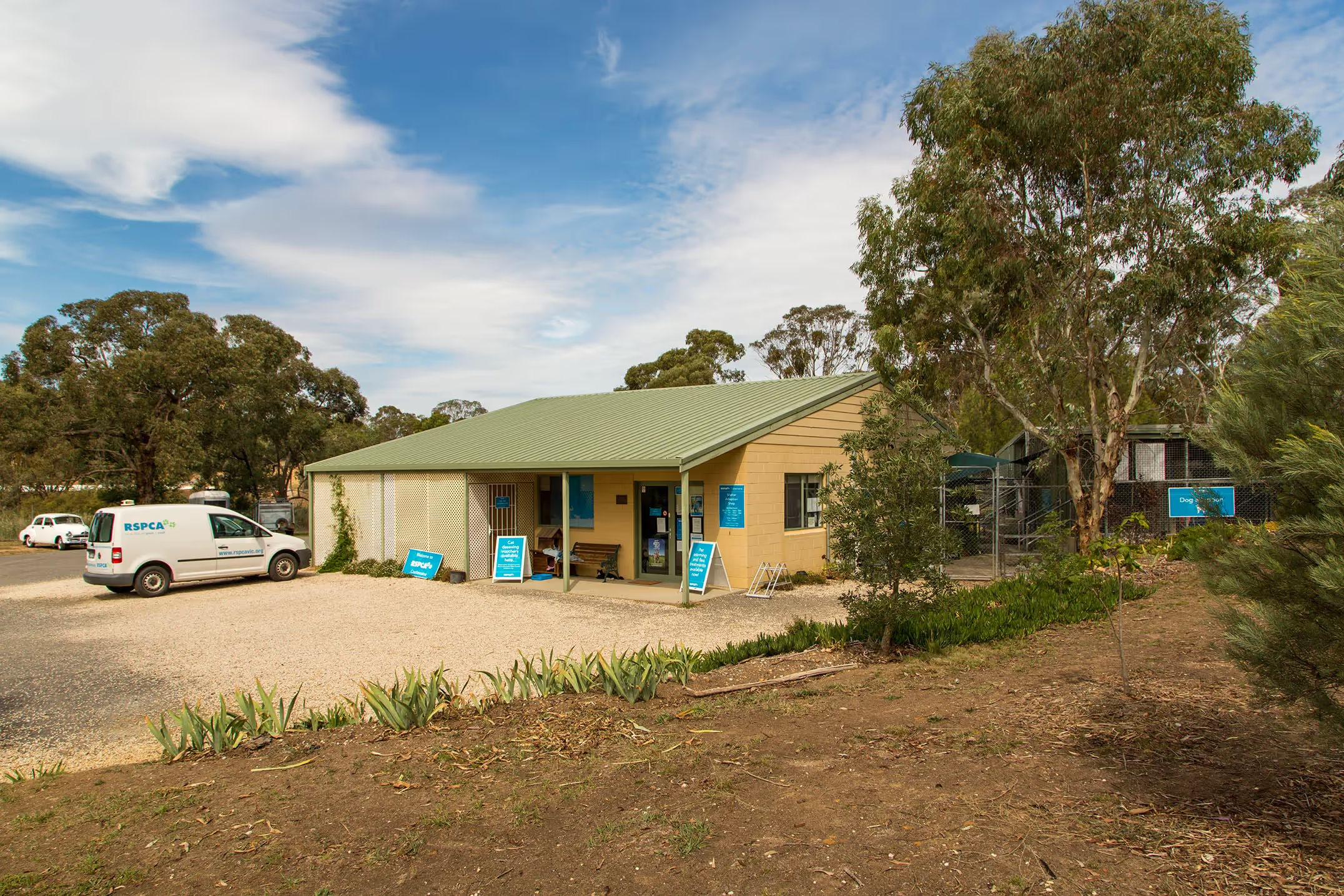
We make the following points:
In our complex world, much is connected, and part of the strategy to develop the RSPCA Castlemaine Animal Shelter was to improve the capacity of the region surrounding Castlemaine (where the population continues to rise) to deal with the growing animal welfare issues and do so in an increasingly professional manner. Part of this was of course to develop the capacity of local people, their training, their knowledge and their skills.
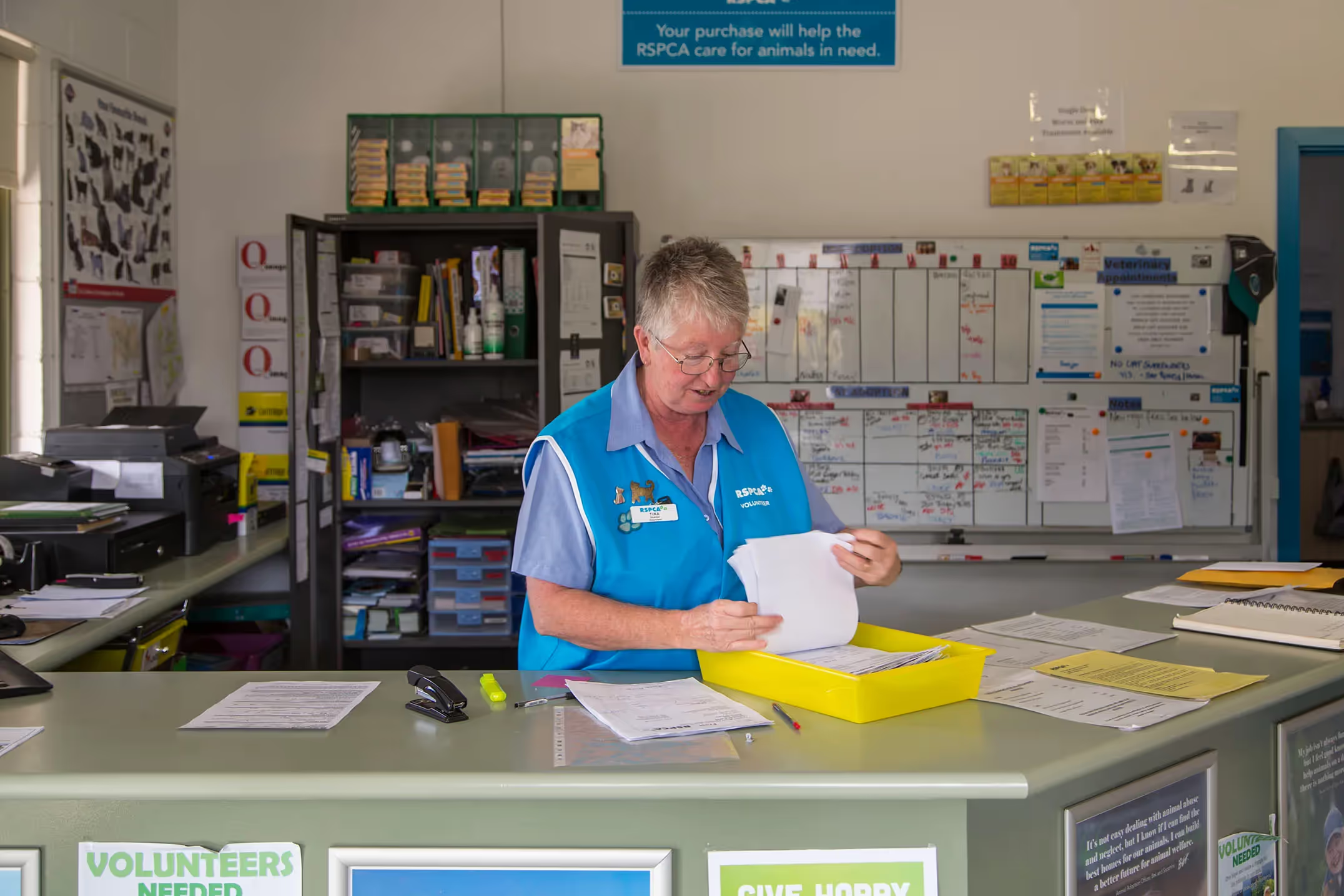
The RSPCA Castlemaine Animal Shelter has provided employment since it opened and has strengthened its community of volunteers. The centre is important to both staff and volunteers and we should not forget the social and economic benefits that the shelter delivers to the Mount Alexander Shire.
The environmental, social and economic benefits include the housing and the rehoming of unwanted animals in an efficient and well organised manner, in doing so reducing the real costs to local government; local employment and skills development; the social and wellbeing benefits of creating a volunteering network and the direct benefit to the environment and to so many of Australia’s species that cling on to existence by the thinnest of threads.
Under the system that existed in tandem with the RSPCA Castlemaine Animal Shelter, council provided cat traps. When caught, the cats could be delivered locally to the shelter. With larger animals there are no doubt safety aspects to these matters, particularly so regarding road safety.
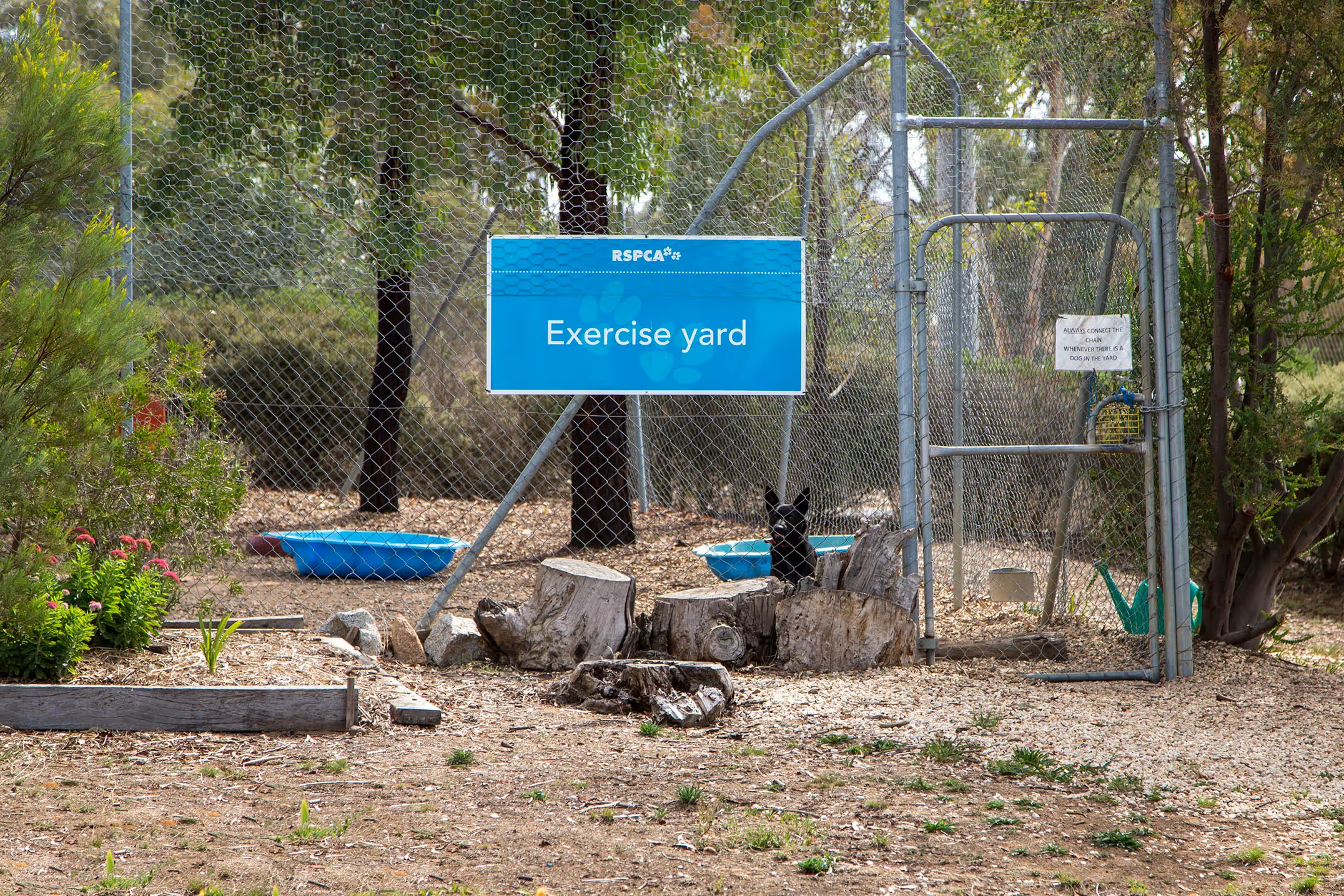
Our view is also this, the direct presence of the RSPCA has and did have an impact on the level of cruelty dished out to animals in the region. The RSPCA plays an important role in the immediate region, educating the public and shifting attitudes in relation to the way in which animals are treated.
It is extremely disappointing that we were not informed about the shelter’s closure and it would have been reasonable to expect, given the costs and the effort, that the RSPCA discuss the matter with us.
Our point regarding the RSPCA is this, given other closures or proposed closures of other regional centres, it appears that the RSPCA has a strategy to withdraw from rural regions. This strategy is the opposite to the one being promoted twenty years ago. We have had a careful look at the RSPCA’s financial progress from its Annual Reports and it does not appear that there are pressing financial reasons for the shelter to close. The costs to animal welfare and the Castlemaine community as we have described them outweigh any benefits of closure.
As a charity we must understand that the RSPCA operates on a social as well as an animal welfare license. The RSPCA still receives substantial funding from the Victorian government and hence the taxpayer.
We note Liz’s comments in the Bendigo Advertiser (9/6/17):
“RSPCA Victoria is working to ensure that we can sustainably provide the best possible welfare outcomes to every animal in our care, while also improving our ability to prevent cruelty and neglect through community programs,” Dr Walker said.
We have come to dislike the word sustainable, particularly in the Victorian context, as it usually describes a litany of concocted nonsense, particularly so around matters concerning animals.
Given the RSPCA Castlemaine Animal Shelter’s success (RSPCA’s words not ours) and the commitment of locals to animal welfare issues, and the success of the RSPCA in Victoria, it is extremely unlikely that the RSPCA Castlemaine Animal Shelter is not sustainable. Given our very long experience with dealing with animal welfare and conservation issues in this place, what is absolutely certain is that the RSPCA will not be providing the best possible welfare outcomes to every animal in the Castlemaine district.
The existing Bendigo shelter is not a substitute for the Castlemaine shelter and can never be. Given what we have seen over decades and attempted to remedy by our actions, it is most unlikely that residents are going to deliver injured, trapped or lost animals to Bendigo or that any council ranger will be available 24/7 to do just that.
The proposed closure of the RSPCA Castlemaine Animal Shelter will also have a very significant impact on other animal welfare organisations operating in the region, as the level of care currently delivered by the RSPCA Castlemaine Animal Shelter, fades. We go back full circle to the situation, as it existed in the 1970s but with an even greater loss of capacity.
"So time wasted, effort wasted, dedication wasted and money wasted, going nowhere". Andrea Hylands
Concentrating larger numbers of animals in larger centres, as it appears the RSPCA in Victoria intend, is also likely to mean that fewer animals are re-homed because of logistical reasons and higher levels of competition for animals to find a home in a given geographical area. That most likely means more animals will be euthanised.
The real strength of the RSPCA is in its physical presence, delivering services in relation to animal welfare in ways that no other organisations in Australia have the capacity to deliver. For the RSPCA to develop strategies that focus their own activities centrally in Melbourne and to disconnect itself from regional Victoria is not helpful to animal welfare issues in the State.
There may be an important role for the RSPCA to lobby governments in Australia to improve standards of animal welfare but what we can say is this lobbying effort is increasingly falling on deaf ears as the immense cruelty to wildlife and the horrors of Australia’s live export trade and factory farming continue at ever greater scale.
The need is for the RSPCA to strengthen its presence in regional Victoria and it requires the support of local governments in the State to do just that. What we say over and over again is that the issues we discuss here need proper cooperation between the RSPCA, local and state government. In this way effective regional strategies are developed.
The donation to the RSPCA from the Pamela Water’s trust was purpose specific, that is, the funds were donated to create a long-term regional benefit to the shire by constructing the animal shelter. Moving Pamela’s plaque from the building to another location does not resolve this problem in any way as the donation has become meaningless.
We remain unclear about what is now going to happen to an expensively built, specific purpose building?
Was the intention to pass it back to a local animal welfare group?
What we discovered, as the facility was rescued by locals, is that the RSPCA, as a condition of keeping the facility open, sold it back to the local animals welfare group, substantially reducing the regional capacity to deal with the broad range of animal welfare issues.
This is entirely disgraceful. Greed not animal welfare.
Standard procedure in Australia, when it comes to conservation and animal welfare issues, is to ignore the evidence, experience and histories and deny there is a problem.
We see the same thing over and over again, despite overwhelming evidence to the contrary. It is for this reason, and much of this denial behaviour comes from various levels of government, that it is hard to make any progress in Australia to protect species or have a long-term impact in reducing cruelty to animals, domestic or wild.
"In relation to conservation and animal cruelty matters in Australia, for us this issue of denial has become multigenerational, if you have seen something right there in front of you and have done so a thousand times and over decades, and you know it to be correct, it is incomprehensible that yet another generation of politicians or public servants are denying the very same thing their predecessors denied. All of it only heading in one direction, and that is disaster. The critically endangered Great Barrier Reef ecosystem is a leading indicator of attitudes and there are thousands more such things". Andrea Hylands
In the case of the RSPCA Castlemaine Animal Shelter, the impacts of its closure will be greater levels of suffering by animals in the region, yet further damage to the environment, particularly wildlife, and the loss of capacity and community in the animal welfare sector in Mount Alexander Shire.
For Andrea and I, we think of a lonely hillside in Central Victoria where Les and Andrea and many friends scattered Pamela’s ashes all those years ago. It is her memory that we think of now.
Peter and Andrea Hylands, July 2017, Japan
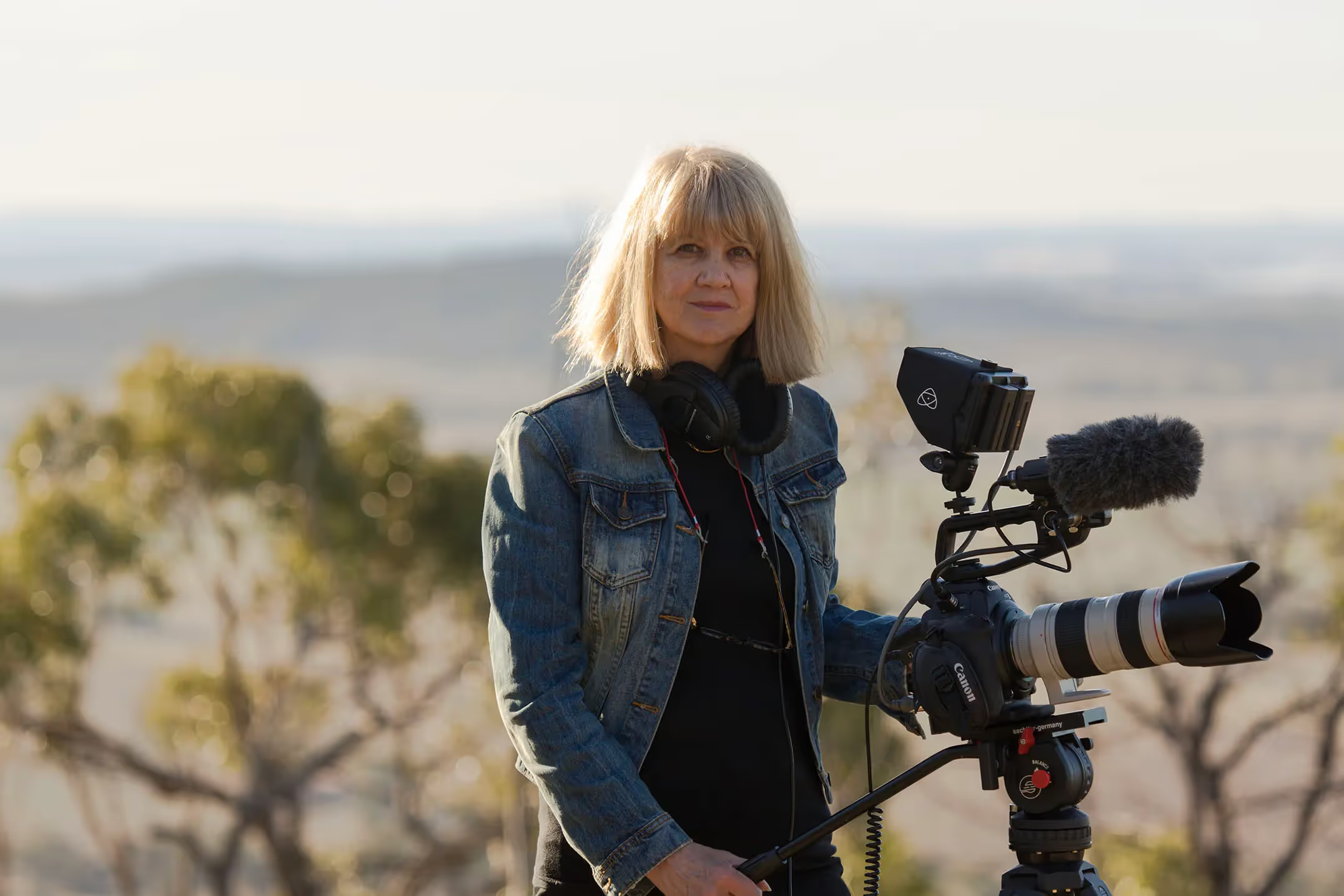
An additional note added 12 July 2017
What we feel looking at responses and the comments from RSPCA COO, Tegan McPherson and others is that the RSPCA, and this is not in their own interest, are being somewhat insensitive. The RSPCA do not subsidise anything, we all subsidise the RSPCA from our giving and fundraising. The RSPCA are a third sector organisation and a charity and history has shown it is dangerous for charities to confuse their role with that of a corporation.
We make these comments for the sake of the RSPCA because the kind of attitudes that have been displayed by the RSPCA in Victoria, and what has occurred so far in Castlemaine, are not helpful to the RSPCA brand.
The Castlemaine district has always been very active in raising funds for animal welfare and the animal welfare / RSPCA shop in Castlemaine and its team of volunteers have made a considerable contribution over many years to raise funds for animal welfare. As we understand it the funds raised in Castlemaine went directly back to Melbourne RSPCA where they are centralised and reallocated to various RSPCA needs. Some of this money and perhaps more will be returned to Castlemaine.
Fair enough if this provides better control of finances to directly help animals.
Local donations need to be available to animal welfare organisations that operate in the region. To lose the RSPCA presence also diminishes other local animal welfare organisations at the same time as placing more stress on them.
The next point is that if the RSPCA are now saying the Castlemaine shelter is causing financial problems because it is being subsidised from Melbourne.
There are a number of things that could have be done to improve the situation if it were true, and those include additional fund raising efforts. The RSPCA has a very mature marketing team who are very good at what they do.
Yet the first we hear of any of this is to find out from the Bendigo Advertiser (well done) that the shelter is closing. So it appears that little effort was made, if at all to try to save the shelter.
This tells us a different story and that is this is part of a strategy developed in the RSPCA board room, and because this whole thing has been handled less than well, there is now some back filling going on to try to justify the decision.
Our point is that animal welfare cannot be sustainable in the corporate sense as we have no control over how people choose to treat their animals, how many ill-treated animals there are and so on. The RSPCA is the organisation that can influence these things within a community by its presence and educating the community on animal welfare issues, the very thing that our friend Hugh Wirth was such a genius at doing.
Today we hear nothing from the RSPCA in Victoria on these issues, just fund raising and marketing wildlife products as pet food (now withdrawn).
The things that really matter here are:
The other concern for the RSPCA is that they are sending a worrying signal to donors of specific purpose gifts. If people are going to donate large amounts to the RSPCA then they will have to accommodate the whims of the givers. Their own headquarters are a case in point.
We make the point that the driver for the Castlemaine Animal Shelter construction was the RSPCA itself. Pamela’s gift had been available from the time of her death in 1987 but it was well over a decade later that anything happened in terms of getting the project moving, and that was with our intervention, as we wanted to see the wish of all fulfilled, including those of the RSPCA. That wish was of course, that the animal shelter was built, and that the long planned project was finally completed.
On the issue of finance, in addition to the payments made to the RSPCA by the Mount Alexander Shire, there are the sales revenues from the shop, which are not insubstantial, and any local donations to be added to this. I would very much like COO Tegan to tell us how the calculations were made to substantiate her claim that the shelter is not sustainable.
"The cost of managing animal welfare issues are real and exist, you can't just vanish them. In the end someone has to pay". Andrea Hylands
From a regional perspective, governments nowadays want to see regions building their own capacity, for one thing, to fight growing inequality between regions. We see Castlemaine and Bendigo quite separately when it comes to animal welfare issues. Castlemaine and district with all its small towns, a growing community, needs its own animal welfare facilities. As these facilities already exist and have been paid for, it seems foolish to close them down.
Perhaps a greater effort is required from the RSPCA in Melbourne to raise funds to keep regional shelters open. Local Governments need to be aware of these issues and avoid cost shifting in relation to regional animal welfare back to the community. In the end this si the work of the Victorian State Government, its policies and persecution of the RSPCA, driving the organisation from regional Victoria.
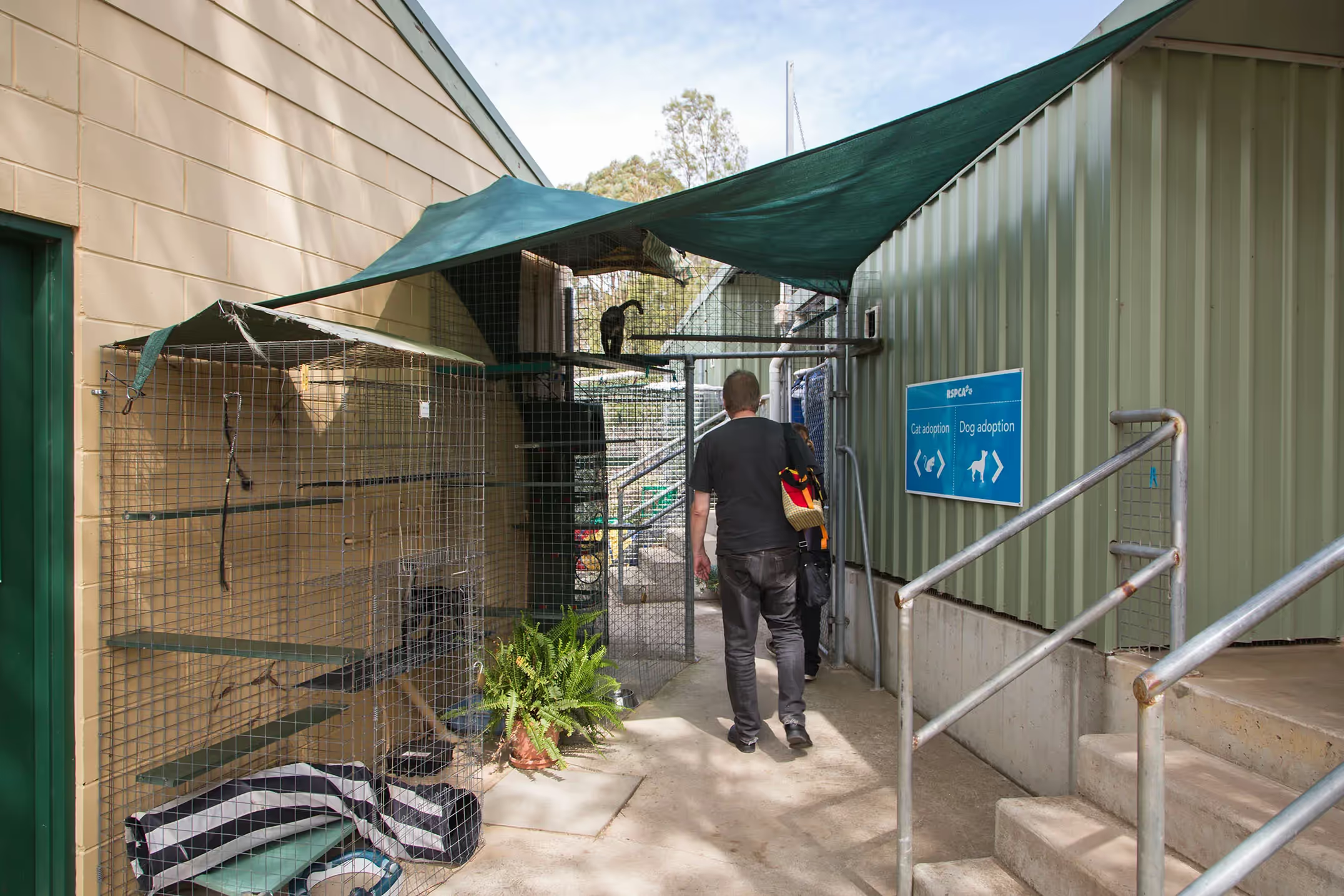
NOTE: As various Australian Governments attempt to circumvent or wind back protections relating to animals (including wildlife) there will inevitably be more and more animal welfare issues.
The RSPCA in Australia, because of the burgeoning amount of cruelty towards animals, both domestic and wild, is itself under increasing pressure – more cruelty means more costs – and from political activism from various organisations and political parties who want the RSPCA and its inspectors gone, particularly so from regions. These groups include shooters, some farmers and the dog racing industry.
"We believe that everything should be in plain sight and that is why we call it democracy, these people do not. We might ask why?" Peter Hylands
As a result of these things the RSPCA in Victoria was subjected to a Victorian Parliamentary Inquiry, the complaints against the RSPCA and the reason for the inquiry broadly relate to claims from these activist politicians and groups that the RSPCA is itself engaged in animal activism and political campaigning.
These things relate directly to the RSPCA's engagement in animal welfare issues regarding such things as duck hunting, greyhound racing and live exports. In 2017 the RSPCA were no longer present at Victoria's annual season of the slaughter of waterbirds.
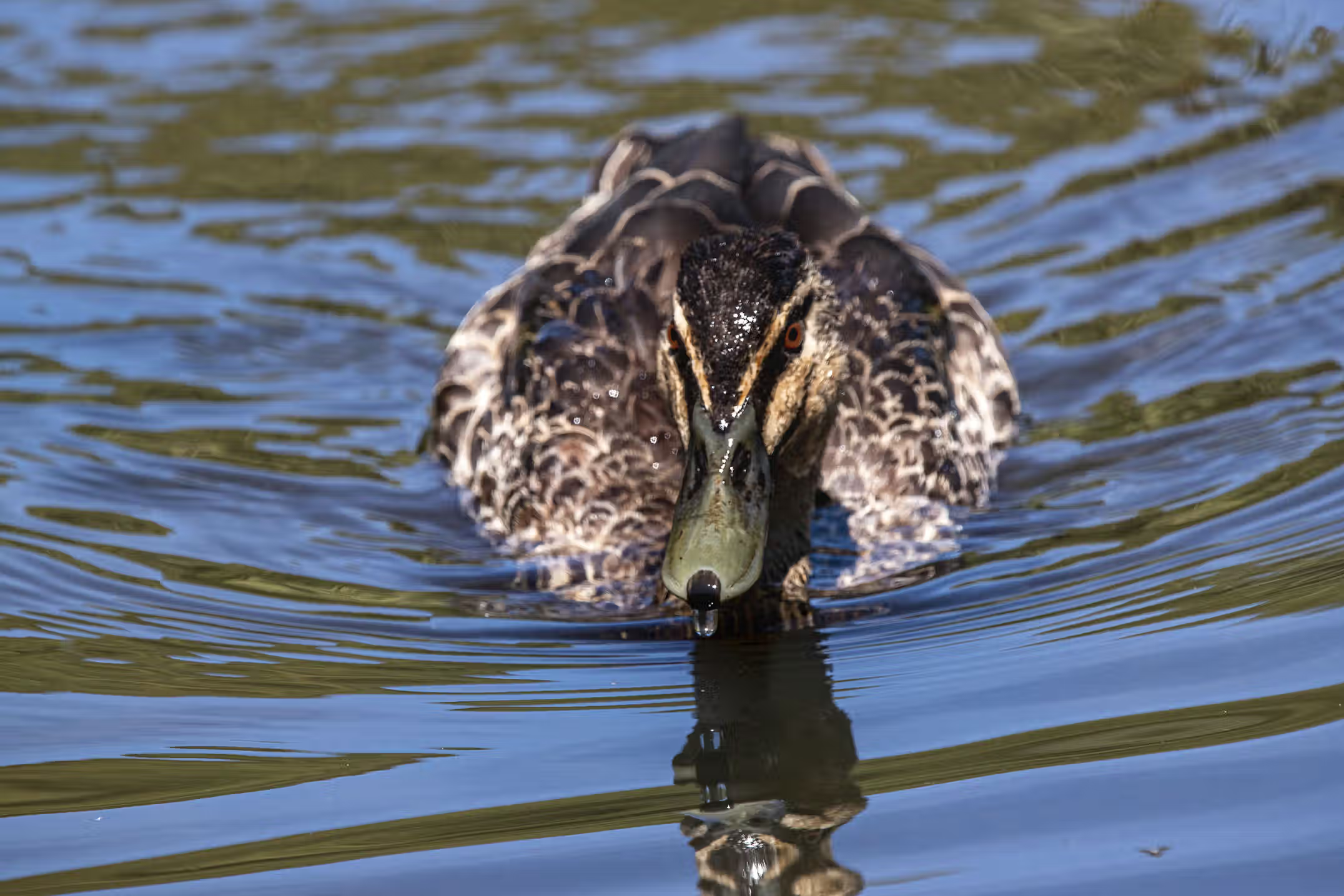
The yet again, repugnant conduct from an Australian state government, does not help build the RSPCA's capacity to remain in Australia's regions and that will be a very poor outcome for animal welfare.
What is required now is some strong leadership from the RSPCA.